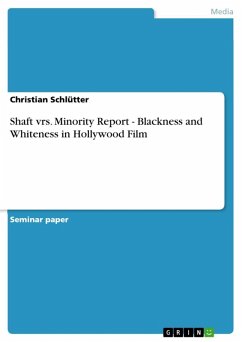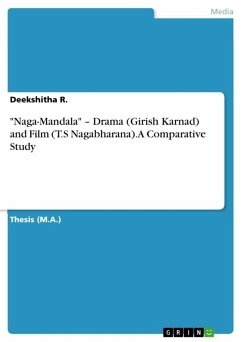Seminar paper from the year 2003 in the subject Communications - Movies and Television, grade: 1,7 (A-), University of Siegen (Anglistics), course: Delirious New York - Hollywood Film, language: English, abstract: At least since political and social considerations of black rights movements have found their way into Hollywood movie studios in the 1960ies, blackness in film has always been a central point of cinematographic discussion. Blaxploitation movies, for example, have been critically observed by both white and black film critics and have gained a wide range of differentiated responses. Interesting enough, whiteness in Hollywood film has mostly been disregarded by critics until the late 1990ies. Indeed "There has recently been a recognition of the need to undertake analysis of whiteness without maintaining and intensifying the privileged position assigned to it" (Young, Lola; Fear of the Dark - Race, Gender and Sexuality in the Cinema. New York: Routledge. 1996: 32). The fact that a film has a white director or is mainly starred by white actors seems to be normality in western societies. "White has no categorical status: it is the norm against which everything else is measured with no need of selfdefinition." [Dyer, Richard. "White" Screen: The Last Special Issue on Race?. Volume 29, Number 4, Autumn: 44-65. 1988. Quoted in: Young (1996)]. This quote exemplifies the role that whiteness had for a long time within the western cinematic analysis system. With the changing conception of blackness in film and the change in the political discourse of the terms 'race' and 'ethnicity', it becomes obvious that whiteness indeed has a need of self-definition and ana lysis. When one really takes these points into consideration, it becomes obvious that whiteness in film can have as much effect on the viewer as blackness in film and that it should be analysed just as well in modern film criticism. In this essay I will try to give two examples of each the 'black' and the 'white' realm of film and I will try to point out in which way the effect that these films have on the reader is influenced by the ethnical group their protagonists belong to.
Dieser Download kann aus rechtlichen Gründen nur mit Rechnungsadresse in A, B, BG, CY, CZ, D, DK, EW, E, FIN, F, GR, HR, H, IRL, I, LT, L, LR, M, NL, PL, P, R, S, SLO, SK ausgeliefert werden.









